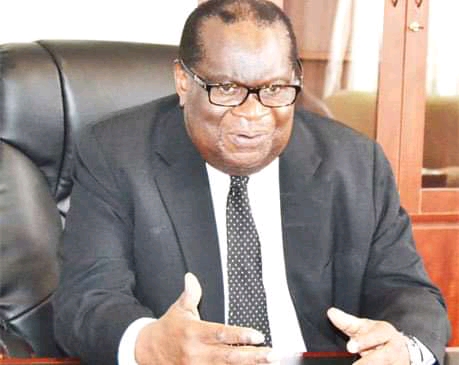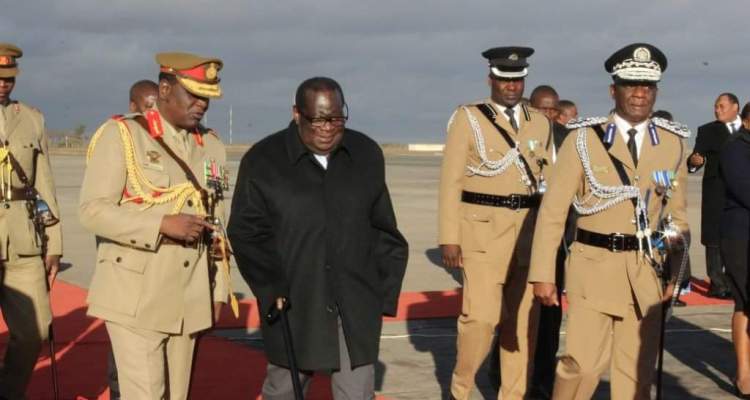By Mzati Nkolokosa
Now imagine this: you are appointed a minister, finance perhaps. Sworn in. First day in office.

The Secretary to Treasury (ST) welcomes you with three documents: one, the previous week’s economic market performance of nine pages; two, an African Development Bank (ADB) 60-page feedback to Malawi Government’s request for project financing; and, three, an IMF country report of 33 pages.
“These are the urgent matters,” says the ST. “There are secondary matters, also. I will bring them to your attention at your request.”
Where do you start from? Of course, you browse the documents: executive summary, findings, recommendations — and proposed actions from ST. But as minister, you have to act to achieve the goals of your president. So, action points have to be reviewed, somewhat.
What next? This is where social capital is required. And for Goodall Gondwe, he had a lot of social capital both at home and abroad, having spent decades working across the world.
He had a top score on global social network analysis, close to the centre. Goodall could call anyone in Malawi. He could freely call anyone or someone close to someone he needed outside Malawi.
Ken Lipenga, the gifted journalist and writer (and still academic), witnessed Goodall’s closeness to the centre of the global social network during a visit to IMF.
“The respect for my senior colleague among IMF officials, young and old and of all races, many of whom had pretty much been trained on the job by him, verged on near-worship,” recalls Lipenga on his Facebook.
Near-worship? Malawi was lucky to have Goodall. A minister who enjoyed such respect at IMF could, therefore, pick up his phone and call an IMF official, a World Bank official, or a finance minister in any part of the world.
“Hello,” he could say, “my name is Goodall Gondwe, Minister of Finance in Malawi.” His name would be better known than Malawi. We must be fair: Malawi benefited a lot from Goodall’s social capital across the world.
We can count few Malawian politicians with such a rich social capital, politicians who are close to the centre of global social network: Goodall, Peter Mutharika, George Chaponda, Dalitso Kabambe, the kind of politicians who can pick up a phone and call anyone or someone close to the world’s most important people. In that sense, such politicians are bigger than Malawi.

Goodall was bigger than Malawi. The rejection of this reality is one of our main challenges as a country. We want to treat all people equally. But that is unrealistic. We are on different spots on the global social network.
A global network analysis would reveal that most of us are on the peripherals. Goodall was close to the centre, directly and/or indirectly.
We love (don’t we?) the output of the European Premier League: great football, creative marketing, and huge salaries for players. But we hate the input: one of which, perhaps the greatest, is that players are treated differently, not equally. This is evident in the salaries of players.
Here in Malawi, we want to treat all players equally. We should learn to accept that some individuals are bigger than their institutions and we need to treat them as such. Mwawi Kumwenda is bigger than Malawi netball and she deserves to be treated as such. Professor Address Malata is bigger than the university that she is serving. She can pick up her phone and call anyone in her field from any part of the world.
Thom Mpinganjira is bigger than Malawi. He is close to the centre of global network of entrepreneurs. (You can add to the list.) That some people are bigger than Malawi is a reality that we reject, with a smile. Yet we accept exactly the same reality in EPL, where some players are treated according to reality: that they are bigger than their teams.
Perhaps the loss of Goodall, an economist who was greater than Malawi, provides an appropriate time to appreciate that some people are greater than institutions that made them or institutions that they serve.
The life and the work of Goodall teaches us that national economies have a way of behaving according to the personalities managing them.
This lesson should remind us that the office of president or minister demands social capital to benefit Malawi. Before we offer ourselves for the office of president or accepting a ministerial portfolio, we should examine ourselves: what is it that Malawi would benefit from me?
Likewise, before supporting a politician, we should ask ourselves the question: what social capital will he/she bring to office?

